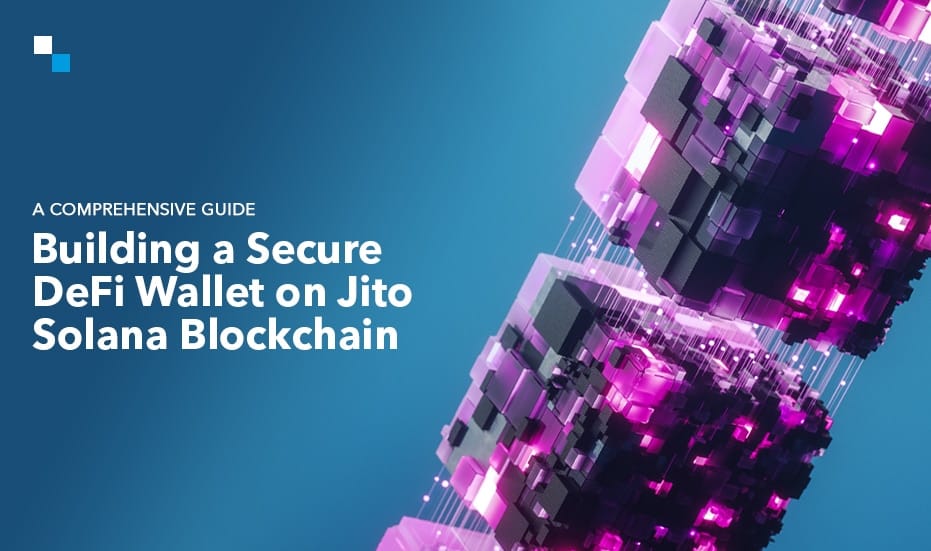
Soulbound Tokens: Driving a Change in the World of NFTs
June 6, 2022
7 Different Types of Cryptocurrency Development
June 8, 2022Decentralized Finance or DeFi has proven to be one of the hottest sectors in the crypto space. Leading DeFi protocols like Aave, Curve, and Maker DAO have experienced a huge surge in the total value locked (TVL). This indicates that the investors from the traditional financial world are seeking refuge in the DeFi protocols. It is important to note that a DeFi wallet or decentralized wallet is the first interface that allows investors to enter the DeFi space.
Before we understand how DeFi Wallet development can enable transactions in the DeFi ecosystem, let’s first learn how DeFi wallets are fundamentally different from normal crypto wallets.
The assets stored in the crypto wallets used by the investors on exchanges are under complete control of the exchange. On the other hand, the assets stored in DeFi wallets are completely under the control of the users. Thus, the DeFi wallet becomes a soft spot for DeFi ecosystem attackers and that is why ensuring impregnable security features while DeFi wallet development is paramount.
Features of a DeFi Wallet
For a DeFi wallet to penetrate a highly competitive market, it is important to make sure it has the following functionalities:
1) Key Based Privacy :
The decentralized wallets are secured using a 12-word seed phrase. This is also known as the wallet key or private key. Every time a user interacts with the DeFi wallet he needs to use his private key. Also, the only way to restore a user wallet is through its private key.
2) Non-Custodial :
As discussed above, unlike the centralized wallet, a decentralized wallet is non-custodial. It means when users deposit their assets in their wallets, they do not hand over the custody of their assets to the exchange. They remain in complete control of their assets.
3) Accessibility to more assets :
DeFi is all about making the most of the investor assets. To achieve that, the non-custodial DeFi wallets must support all kinds of DeFi assets like ERC20 tokens, stablecoins, and more.
Develop your own DeFi wallet app
Schedule Free DemoWhich aspects of DeFi wallet need higher security considerations?
To understand this, we first need to understand how the DeFi wallets are exploited and what are the security fixes needed to plug these:
- Exploit #1 Inappropriate Key Management
In any DeFi ecosystem, wallets are the interface of interaction between the users and the ecosystem. The authentication required to access the ecosystem is provided only by the private keys of the user wallets. But most of the DeFi wallets have security issues due to their architectural design. The biggest example of this kind of vulnerability is the Axie Infinity’s Ronin Bridge where assets worth USD624 million were hacked. The hackers were able to obtain five out of 9 validator keys to initiate the transfer of assets. In short, the multi-sig wallet was compromised. Thus, during decentralized wallet development, it is important to consider the aspects of a wallet being a multi-sig wallet where the key is shared by multiple validators.
- Exploit #2 Private Key Leakage
Any kind of DeFi application built on Ethereum, Solana, or Polygon needs to interact with wallets like METAMASK, SOLWALLET, or more. Ethereum or Solana provides an API to support the interaction of the wallet with the chain. This is a vulnerable spot where hackers attack the API and get access to the private key of the user DeFi Wallets. It is very important to plug such a kind of API vulnerability.
- Exploit #3 Phishing attack
The websites of DeFi ecosystems have embedded scripts that enable interaction with the user’s wallet API. The hackers find this as an easy route to conduct a phishing attack via the website. They can create a fake admin email address, access the DeFi ecosystem website, and inject a malicious script into the website. This script would prompt users to provide their private keys that can then be captured by the script and be used by the hacker to gain access to users’ assets. The phishing attack identification must be programmed in a decentralized wallet to avoid any such exploits.
Wrapping it up
The consequences of private key compromises or smart contract exploitation in a DeFi ecosystem are always devastating. And this can take away the trust of the users of the space. Thus, it is really important to consider these kinds of attacks on the decentralized wallet and make sure these are addressed during DeFi Wallet development.
If you are looking for highly secure decentralized wallet development, Antier Solutions can help. We have experience and expertise in creating highly secure DeFi wallets that enable secure storage and transfer of a spectrum of crypto assets.
Schedule a free demo of one of our DeFi wallet projects or connect with our subject matter experts to share your needs for DeFi wallet development.



